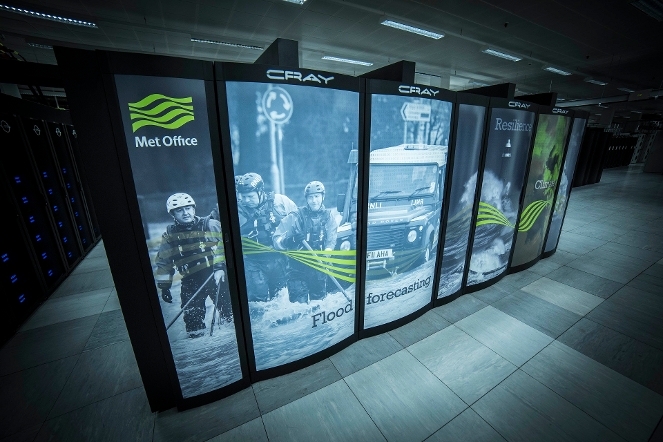ARM, HPE, SUSE To Build UK Supercomputer For AI Research

The supercomputer is to be powered by ARM and SUSE Linux and sited in clusters at Edinburgh, Bristol and Leicester universities
Chipmaker ARM Holdings, HPE and German Linux maker SUSE are to collaborate with three British universities on a supercomputer programme aimed at boosting supercomputer-powered applications including artificial intelligence (AI) capabilities.
The system, which is to be located on three sites at the Edinburgh Parallel Computing Centre (EPCC) at the University of Edinburgh, the University of Bristol, and the University of Leicester, is to be completed this summer.
It is part of the three-year Catalyst UK programme, which aims to collaborate with industry on developing applications and workflows for the ARM architecture.
The programme has a more specific focus on exascale systems, which can execute a billion billion calculations per second.

The race to exascale
Such systems don’t yet exist, but a number of countries have plans to build them, with China’s National University of Defense Technology (NUDT) saying the country expects to have such a system in service by 2020.
The US Department of Energy (DOE) last week issued a request for propsals for the development of at least two new exascale systems, at a cost of up to $1.8 billion (£1.26bn). The European Commission said earlier this year it would invest 1bn euros in a project to develop a system on a similar scale, with the aim of constructing the world’s fastest supercomputer by 2023.
For the UK, such systems are part of a broader effort to stave off the challenge posed by leaving the European Union, which could affect the country’s current status as Europe’s technology hub by making it more difficult to attract highly skilled staff.
In response, the government’s industrial strategy has identified AI as one of the key areas in which it wants to achieve leadership, with other areas including financial technology and self-driving cars. In AI the UK faces serious competition from rivals including France, which already hosts major AI research facilities and has launched AI initiatives of its own in recent months.
“Today’s announcement marks a major step forward in boosting collaboration between the government and business to harness the power of innovation in supercomputing and AI,” said Sam Gyimah MP, Science Minister. “The UK will lead the AI and data revolution.”
HPE first discussed the supercomputer last summer in meetings with the UK’s department for international trade.
The system is to be designed, built and supported by HPE, with the programme also aiming to provide exascale training for researchers.
ARM-powered clusters
The three clusters will run more than 12,000 ARM cores, hosted on HPE Apollo 70 HPC systems.
Each cluster is to consist of 64 HPE Apollo 70 systems, with each having two 32-core Cavium ThunderX2 processors and 128GB of memory wth Mellanox InfiniBand interconnects. They will use SUSE Linux Enterprise Server for HPC as the operating system.
“We are currently seeing an insatiable demand for compute performance, as companies seek to gain actionable insights from their data,” said Mike Vildibill, vice president of HPE’s advanced technologies group. “As we embark on the global race towards more powerful and eventually exascale systems, new approaches and technologies are needed to tackle some of the key challenges in achieving these levels of performance, such as rising energy consumption.”
The UK currently has 15 supercomputers in all, with one in the world’s top fastest 20, a Cray system run by the Meteorological Office, according to the Top500 rankings group.
France has 18 and Germany 20, while China and the US have 202 and 143 respectively.
Put your knowledge of artificial intelligence (AI) to the test. Try our quiz!